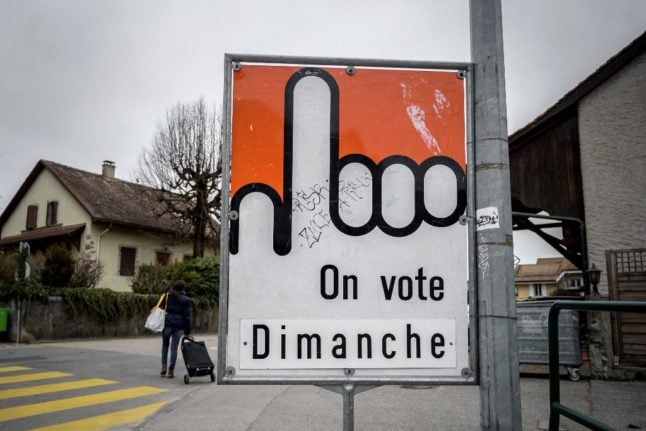Swiss law requires a referendum when a proposal for a law change made by the government is opposed by enough voters.
With all three initiatives proposed by the government solidly backed by the voters, “the authorities won everything this Sunday”, commented The Tribune de Genève.
“After the Covid years which kept the government away from the people, this is a rejoicing signal.”
This is how the “for” and “against” camps reacted to the outcome.
Organ donation
The government’s plan of “presumed consent” in organ transplants was approved by 60.20 percent of voters.
For Manuel Pascual, director of the transplant centre at the Vaud University Hospital (CHUV), the vote is a “paradigm shift in changing the approach to organ donation and transplant medicine”.
He added that “the safeguards are there so that there are no abuses”.
“The clear result in favour of presumed consent shows the strong disposition of the Swiss for organ donation. But it will be necessary to continue to convince and reassure [the public]”, said MP Michel Matter.
However, those against the law, like the Swiss People Party (SVP), argue that the notion of presumed consent — meaning that viable organs could be removed from deceased people who did not specify their opposition to being donors their during their lifetime — “restricts the freedoms and individual responsibility of citizens and strengthens the hold of the state on our private lives”.
And SVP president Marco Chiesa called the measure “too radical”.
You can read more about what the new legislation proposes here:
EXPLAINED: What Switzerland’s ‘organ donation’ vote means for you
Lex Netflix
With the 58.42-percent approval rate, this legislation increases in costs of streaming services in Switzerland, alongside significant programming changes.
Supporters such as the Social Democratic Party see the referendum outcome as a “strong signal for the cultural and linguistic diversity of our country”, as the new law stipulates that streaming platforms should contribute 4 percent of their profits to support domestic film-making, and that 30 percent of the content of streaming services must consist of films or series produced in Europe.
READ MORE: What is the ‘Netflix vote’ and how could it change TV in Switzerland?
“Culture has a profoundly public service role, because it must serve to connect all of our diverse populations in Switzerland”, according to MP Ada Marra.
However, Matthias Müller, head of the opposition committee, pointed out that the ‘yes’ vote will have consequences for all streaming services subscribers, as Netflix and other platforms “will pass the costs on to consumers”.
Frontex
The so-called “border vote” has obtained the highest approval of all the issues at the ballot box: 71,48 percent said ‘yes’ to Switzerland’s expanded participation in the European Border and Coast Guard Agency (Frontex), which monitors the external borders of the Schengen area.
READ MORE: Frontex: How Switzerland’s ‘border vote’ on May 15th could impact travel
Jürg Grossen, president of the Liberal Green party said voters’ approval “is a clear signal” for a stronger collaboration between Switzerland and Europe.
And for MP Damien Cottier, “it is a good thing for Switzerland that we have not added a difficulty in the relationship with the EU”.
The EU Commission also expressed its satisfaction with the result.
The Swiss vote today reaffirms the importance the Swiss place on both the role of @Frontex and the benefits of free movement and border management.
Schengen remains our crown jewel, it has come out of the pandemic more resilient and is helping us welcome people from Ukraine.
— Margaritis Schinas (@MargSchinas) May 15, 2022
Opponents, however, were dismayed with the decision, saying that “Frontex is responsible for the violent policy carried out against migrants at the external borders of the EU” and is complicit “in human rights violations and unlawful deportations”.
Therefore, “this result is disappointing and even shameful for a country that claims to follow the rule of law and a humanitarian tradition”, said Sophie Guignard, a member of the opposition committee.
“It amounts in a way to turning a blind eye to an inhumane policy”



 Please whitelist us to continue reading.
Please whitelist us to continue reading.
Member comments